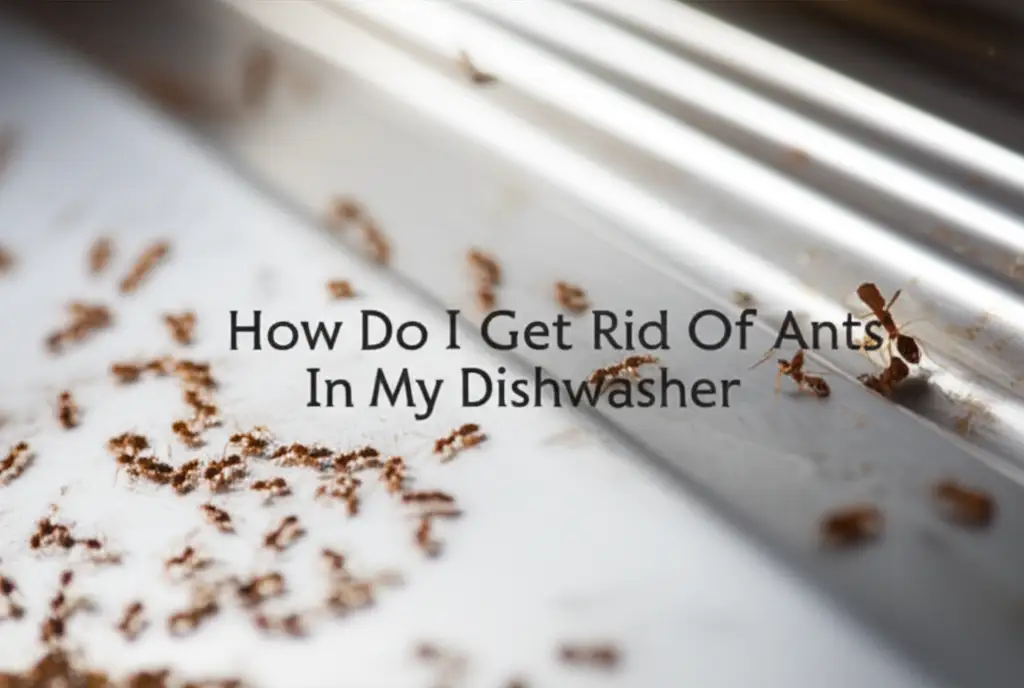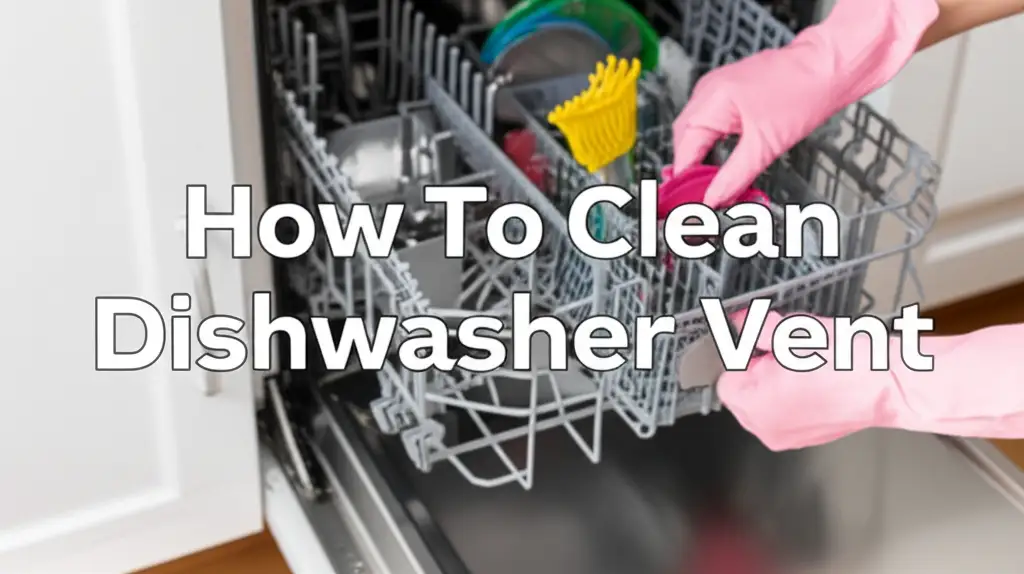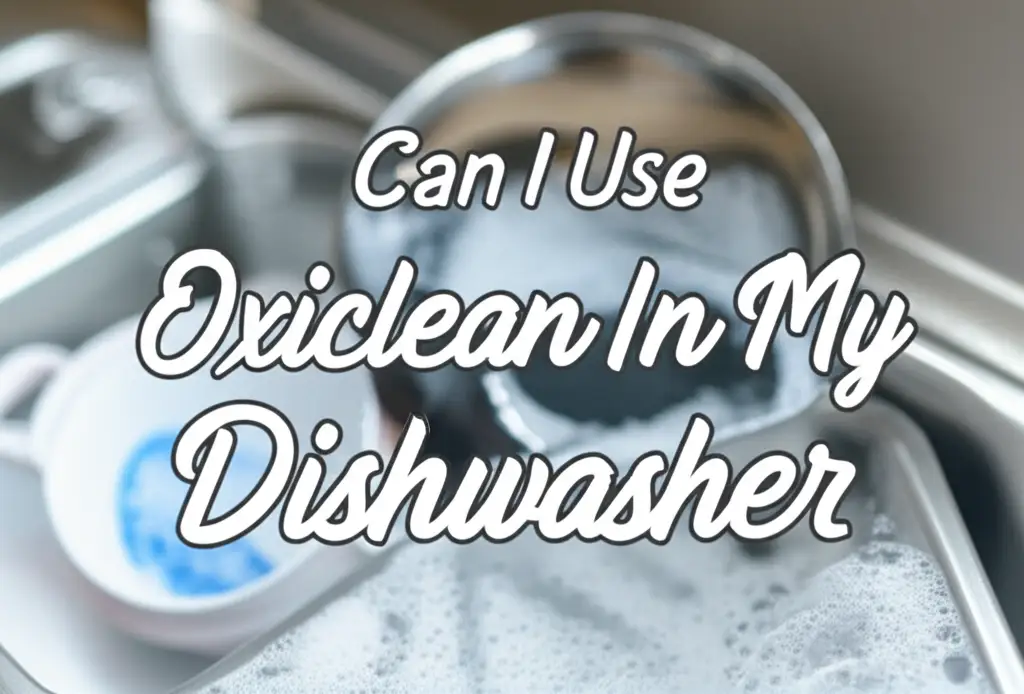· Elira Thomsen · Home Pest Control · 16 min read
How Do I Get Rid Of Ants In My Dishwasher

Say Goodbye to Ants: How to Get Rid of Ants in Your Dishwasher
Finding ants marching through your dishwasher can be a truly unsettling experience. It turns your convenient kitchen appliance into an unwelcome pest hub. You might wonder why these tiny invaders chose your dishwasher of all places. The truth is, dishwashers offer ants everything they need: food scraps, water, and shelter.
This comprehensive guide will help you understand why ants appear in your dishwasher. We will provide clear, actionable steps to eliminate them effectively. We will also show you how to prevent their return. Prepare to reclaim your kitchen and ensure your dishwasher remains a clean, ant-free zone.
Takeaway
- Clean Thoroughly: Remove all food debris and deeply clean the dishwasher’s interior, including filters and seals.
- Identify Entry Points: Locate ant trails and seal any cracks or openings in your kitchen.
- Use Natural Deterrents: Employ vinegar, essential oils, or diatomaceous earth for safe pest control.
- Prevent Future Infestations: Maintain kitchen cleanliness and regularly inspect appliances for new ant activity.
To get rid of ants in your dishwasher, first remove all dishes and visible ants. Then, deep clean the appliance using hot water and white vinegar, paying attention to food traps and seals. Finally, address the ant source by sealing entry points and using natural deterrents around your kitchen.
Understanding Why Ants Invade Your Dishwasher
Ants are always searching for resources to support their colony. Your dishwasher, surprisingly, is a prime target for them. It offers a perfect trifecta of what ants need to survive and thrive. Understanding these attractions is the first step toward effective removal.
First, food particles are a major draw. Even after rinsing, tiny bits of food often remain on dishes or collect in the dishwasher’s filter. These crumbs become an irresistible feast for ants. Sugar, grease, and even microscopic food residue are all appealing. Ants send out scout ants to find these resources. Once a scout finds food, it leaves a pheromone trail. This trail tells other ants exactly where to go.
Second, water is essential for ants. Dishwashers hold standing water in their bottom basin or drainage hose. This water is a vital hydration source for ants, especially in dry environments. Ants need water for survival, just like any other living creature. They will seek out any available moisture. This includes condensation or residual water drops inside the appliance.
Third, the dishwasher offers shelter. It provides a dark, damp, and often warm environment. These conditions are ideal for ants to establish a temporary nest or simply find refuge. The hidden spaces around the seals, under the racks, or even within the motor housing can become safe havens. If the problem persists, you might need to think about how often you clean your dishwasher filter. A clogged filter traps food and moisture, making your dishwasher an even more inviting place for pests. I try to make sure my filter is clean so ants don’t get comfortable.
Ants often find their way into your dishwasher through small cracks or gaps. These might be in the floor, walls, or even around plumbing connections. They follow existing trails from outside or other parts of your home. They might come from the sink drain or under the cabinets. Once inside, the dishwasher becomes a part of their foraging route. This means your appliance serves as a cafeteria and a water cooler for the entire colony.
Immediate Steps to Combat Ants in Your Dishwasher
Discovering ants in your dishwasher requires immediate action. Acting quickly can prevent the infestation from spreading. These initial steps focus on clearing the current ants and starting the cleaning process. I always feel a sense of urgency when I see pests in my kitchen.
First, remove all dishes from the dishwasher. Place them in a sink filled with hot, soapy water. Wash these dishes thoroughly by hand. This removes any lingering food particles and potential ant pheromone trails. Do not place them back in the dishwasher until you have fully addressed the ant problem. You want to make sure no ants are left on the dishes.
Next, remove any visible ants inside the dishwasher. You can use a vacuum cleaner with a hose attachment for this. Vacuum all surfaces, including the racks, sprayer arms, and around the door seal. This quickly gets rid of the live ants. You can also wipe down surfaces with a damp cloth soaked in white vinegar. Vinegar not only kills ants on contact but also helps erase their scent trails. This makes it harder for other ants to follow.
After removing visible ants, run a hot cycle with nothing but a cleaning agent. A cup of white vinegar is excellent for this purpose. You can pour it into the detergent dispenser or directly into the bottom of the empty dishwasher. The hot water and vinegar will help sanitize the appliance and break down grease and food residue. This process also helps eliminate ant pheromones that guide other ants. It is crucial to know where to put vinegar in your dishwasher to clean effectively. I always make sure the vinegar gets dispersed properly.
Some people might try to use bug spray directly in the dishwasher. I strongly advise against this. Chemical insecticides can be harmful. They can leave residues that contaminate your dishes and food. Stick to natural and non-toxic methods inside the appliance itself. Your goal is to make the dishwasher an unappealing environment for ants without posing health risks. This approach keeps your kitchen safe and clean.
Deep Cleaning Your Dishwasher: The Ultimate Ant Repellent
Once you have taken immediate action, a thorough deep clean is crucial. This step addresses the root causes of ant attraction. It removes hidden food sources and eliminates ant pheromone trails. A deep clean also ensures your dishwasher is hygienic and operates efficiently.
Begin by fully emptying your dishwasher. Remove the lower rack, upper rack, and the cutlery basket. Inspect these components for any trapped food particles. Wash them in your sink with hot soapy water. Pay close attention to the small crevices where food might accumulate.
Next, focus on the dishwasher filter. This is often the main culprit for trapped food debris. Unscrew or unclip the filter according to your appliance’s manual. Most dishwashers have a cylindrical filter at the bottom. Rinse it under running water to remove large particles. Then, scrub it with a brush and dish soap to dislodge stubborn residue. You might be surprised how much gunk accumulates here. Regular cleaning of this filter is essential for overall dishwasher performance and preventing pests. Knowing how often you should clean your dishwasher filter can prevent many issues, including ant infestations. I clean mine frequently to avoid these problems.
Inspect and clean the spray arms. Small food particles can block the tiny holes in these arms. This reduces cleaning effectiveness and provides more food for ants. Use a toothpick or a thin wire to clear any clogged holes. Wipe down the entire spray arm with a damp cloth. Also, examine the dishwasher door gasket or seal. Food debris and mold can collect here. Wipe it clean with a mixture of equal parts water and white vinegar. This also helps eliminate any mold that might attract ants. If you notice mold, learning how to clean mold off your dishwasher can provide further guidance. I use a toothbrush for those tight spots on the seal.
Finally, wipe down the entire interior of the dishwasher. Use a damp cloth with white vinegar or a specialized dishwasher cleaner. Pay attention to the corners, crevices, and the bottom basin. Run an empty hot water cycle with a dishwasher cleaner or two cups of white vinegar placed in a bowl on the bottom rack. This final rinse sanitizes the interior and washes away any remaining residues. This deep cleaning process makes your dishwasher unattractive to ants.
Natural & Safe Ant Deterrents for Your Kitchen
After deep cleaning your dishwasher, it is important to implement natural deterrents. These solutions help keep ants away without using harsh chemicals. They are safe for your kitchen and your family. I prefer natural methods whenever possible.
One of the most effective natural ant deterrents is white vinegar. Ants hate its strong smell. You can create a spray by mixing equal parts white vinegar and water. Use this solution to wipe down countertops, floors, and the exterior of your dishwasher. Spray it directly on any ant trails you find. The vinegar disrupts their pheromone trails. This makes it impossible for them to communicate and find their way. While you used vinegar inside the dishwasher, this application is for the surrounding areas. Learning where to put vinegar in your dishwasher to clean is good, but applying it outside is also key.
Essential oils are another powerful natural deterrent. Peppermint oil, tea tree oil, and citrus oils are particularly effective. Ants dislike their strong scents. Mix 10-15 drops of your chosen essential oil with a cup of water in a spray bottle. Spray this mixture around entry points, window sills, and along baseboards. You can also dab cotton balls with undiluted peppermint oil and place them in areas where you suspect ants are entering. The strong aroma acts as a natural barrier. I often place peppermint oil-soaked cotton balls under my sink.
Diatomaceous earth (DE) is a non-toxic powder made from fossilized algae. It is safe for humans and pets but deadly to insects. DE works by absorbing the waxy outer layer of an ant’s exoskeleton. This causes them to dehydrate and die. Lightly sprinkle food-grade diatomaceous earth in cracks, crevices, and along baseboards where ants might be entering. You can also sprinkle a thin layer behind the dishwasher or under the sink. Make sure to use food-grade DE to ensure safety in your kitchen. Just be careful not to inhale the dust while applying it.
You can also use bay leaves or cinnamon. Ants avoid these spices. Place bay leaves inside cabinets, drawers, and near the dishwasher. Sprinkle cinnamon powder along ant trails or at entry points. These spices act as a barrier. While these methods are natural, they might not be as potent as vinegar or essential oils for heavy infestations. However, they are excellent for ongoing prevention.
Addressing the Ant Trail: Beyond the Dishwasher
To truly get rid of ants in your dishwasher, you must address their overall presence in your home. The dishwasher might be a symptom, not the source. You need to trace the ant trail back to its origin. This comprehensive approach ensures long-term ant control. I always look for the source of the problem, not just the symptom.
Start by observing where the ants are coming from. Watch where they enter your kitchen. This could be a crack in the wall, a gap around a pipe, or even under a door. Ants create invisible pheromone trails for others to follow. Once you spot a consistent trail, you can begin to disrupt it. Clean the entire trail with a strong cleaning solution, like white vinegar or soapy water. This removes the pheromones.
Next, focus on sealing all possible entry points. Use caulk to fill small cracks and gaps in walls, baseboards, and around pipes. Pay close attention to areas near windows and doors. Ants can squeeze through incredibly tiny openings. Weatherstripping can seal gaps under doors. Inspect the foundation of your home for any larger cracks that might allow ants to enter. Sealing these points physically blocks their access.
Consider using ant baits outside the dishwasher. Ant baits contain a slow-acting insecticide mixed with food that ants find attractive. Worker ants take the bait back to their colony, sharing it with other ants, including the queen. This method eliminates the entire colony over time. Place baits near the ant trails you identified, but away from food preparation areas and pets. Do not place baits inside the dishwasher. Read the product instructions carefully for safe and effective use.
Finally, maintain overall kitchen hygiene. Regularly wipe down countertops and clean up spills immediately. Store food in airtight containers. Do not leave dirty dishes in the sink overnight. Vacuum floors frequently to pick up crumbs. A clean kitchen greatly reduces food sources that attract ants in the first place. This makes your home less appealing to new ant colonies.
Preventative Measures to Keep Ants Away Permanently
Preventing future ant infestations is crucial. Once you have cleared your dishwasher of ants, you want to ensure they do not return. These preventative measures focus on maintaining cleanliness and addressing vulnerabilities in your home. I know the feeling of relief when the ants are gone, and I want to keep them away for good.
First, establish a consistent dishwashing routine. Always pre-rinse dishes thoroughly before placing them in the dishwasher. This removes most food particles that attract ants. Run your dishwasher regularly, ideally every day or every other day, especially if it contains dirty dishes. Do not leave dirty dishes sitting in the dishwasher for extended periods. This gives ants ample time to discover the food source.
Second, make routine dishwasher cleaning a habit. Even if you do not see ants, performing regular maintenance cleans helps. Pay attention to the filter. Knowing how often you should clean your dishwasher filter is a key preventative step. A clean filter prevents food buildup, which is a major ant magnet. Also, regularly wipe down the door seals and spray arms. You can use a mixture of white vinegar and water for these quick wipe-downs. This keeps the appliance smelling fresh and free of attractive residues. Consider running an empty cycle with vinegar monthly to keep the interior pristine.
Third, manage moisture in your kitchen. Ants are drawn to water. Fix any leaky faucets or pipes immediately. Check under your sink for any dampness. Ensure your dishwasher drains properly. If your dishwasher is not draining as it should, you might need to investigate how to get the dishwasher to drain. Standing water inside or around the appliance creates a water source for ants. Wipe up any spills or condensation promptly. Also, ensure proper ventilation in your kitchen to reduce humidity.
Fourth, keep your kitchen tidy. Wipe down countertops, tables, and stovetops after every meal. Sweep or vacuum floors daily to remove crumbs. Store all food in airtight containers, including pet food. Do not leave open food packages on counters. Take out the trash regularly, especially if it contains food scraps. A clean environment reduces the appeal for ants. This simple habit makes a big difference.
When Professional Help is Needed for Stubborn Ant Problems
Sometimes, despite your best efforts, an ant problem can persist or be overwhelming. This is when considering professional pest control becomes a smart decision. Recognizing when to call in experts can save you time, effort, and frustration. I believe in trying DIY first, but I also know when to call for backup.
One key indicator that you might need professional help is the sheer scale of the infestation. If you are seeing hundreds or thousands of ants daily, your problem is likely beyond a simple trail. A massive number of ants suggests a very large colony, possibly with multiple satellite nests. These larger colonies are difficult for a homeowner to eradicate completely with DIY methods alone. Professionals have access to stronger treatments and equipment to handle such large populations.
Another sign is persistence. If you have diligently applied all the recommended cleaning, deterrents, and sealing methods, but ants keep returning, it might mean the nest is well-hidden or very resilient. Ants can nest in difficult-to-reach places. These include wall voids, under foundations, or even deep within appliance structures. A professional can use specialized tools and knowledge to locate these hidden nests. They can then apply targeted treatments.
Certain ant species are also harder to control. Some species, like Pharaoh ants or Argentine ants, are known for their ability to bud. This means if you only kill part of the colony, the queen can simply split off and form new colonies. This makes them incredibly challenging to eliminate without specific expertise. A pest control expert can identify the ant species and recommend the most effective treatment plan for it.
Finally, if you are concerned about using pesticides safely, a professional can provide peace of mind. They are trained in proper chemical application, ensuring minimal risk to your family and pets. They know how to apply treatments safely and effectively. They also offer warranties or follow-up visits to ensure the problem is truly resolved. Investing in professional help can be a cost-effective solution in the long run. This prevents ongoing product purchases and recurring ant issues.
FAQ Section
Why are ants suddenly in my dishwasher?
Ants are attracted to your dishwasher due to food debris, even tiny particles, left on dishes or in the filter. They also seek moisture from standing water in the basin or drainage hose. The dark, warm interior provides a suitable shelter. These factors make your dishwasher an appealing target for foraging ants.
Are ants in my dishwasher dangerous?
Generally, ants in your dishwasher are not dangerous to your health. They do not typically carry diseases harmful to humans. However, their presence indicates a hygiene issue. It suggests food sources are accessible. They can be a nuisance and contaminate your dishes. It is best to remove them promptly.
How can I get rid of ants in my dishwasher naturally?
To naturally remove ants, first clear all dishes and vacuum visible ants. Then, run an empty hot cycle with one cup of white vinegar. You can also wipe down the interior and exterior with a vinegar-water solution. Essential oils like peppermint can deter them. Diatomaceous earth can be used around the appliance’s exterior.
Can ants damage my dishwasher?
Ants themselves are unlikely to cause significant damage to your dishwasher. They do not chew through electrical wires or components like rodents might. However, their presence indicates a lack of cleanliness. Persistent ant activity means food debris and moisture are present. These conditions can lead to other issues like mold growth or unpleasant odors within the appliance.
How quickly can I get rid of ants in my dishwasher?
You can remove visible ants and start the cleaning process immediately. A thorough deep clean can take a few hours. However, completely eradicating the problem and preventing their return can take several days to a week. This depends on the size of the infestation and how well you implement preventative measures.
What attracts ants to a dishwasher besides food?
Beyond food, ants are significantly attracted to moisture sources. Dishwashers often contain residual water in the bottom or drain hose. The warmth inside the appliance also appeals to them. Furthermore, the dark, secluded spaces within the dishwasher’s mechanics provide safe havens for foraging or even temporary nesting.
Conclusion
Finding ants in your dishwasher can be an alarming discovery. But you now have the knowledge to tackle this problem effectively. We discussed why ants invade, the immediate steps to take, and how to perform a deep clean. We also explored natural deterrents and preventative measures. By taking these actions, you can eliminate existing ants and keep your kitchen appliances ant-free.
Remember, consistency is key. Regular cleaning and attention to your kitchen’s hygiene will prevent future infestations. If the problem persists, do not hesitate to seek professional help. Your dishwasher should be a tool for clean dishes, not an ant magnet. Take action today to get rid of ants in your dishwasher and restore peace to your kitchen.





